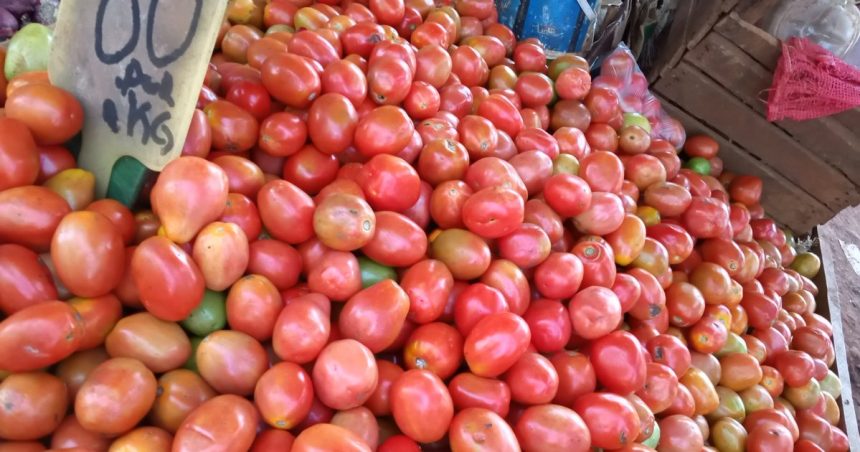A shortage of tomatoes has seen the prices of the commodity skyrocket, making Kenyans lament Tomato farmers attribute the high price to a high demand against a low supply due to the rainy and cold weather in many parts of the country.
Some Kenyans said they have quit buying tomatoes and settled for affordable alternatives.
property prices soar Impossible Foods cuts prices 20% at grocery stores.
A section of Kenyans has raised concern over the high cost of tomatoes in many parts of the country, especially urban centres.
The prices of tomatoes have doubled in some parts of Kenya.Tomato prices in Kenya Traditionally, urban populations are the most significant.
They depend on supply from farmlands away from cities and towns.
Ordinarily, a sizeable tomato fruit costs KSh 10 or below.
Nairobi residents could buy three tomatoes for KSh 20 in high-supply seasons.
However, in recent days, several city and urban centres dwellers have been forced to fork out more shillings to get the ingredient and are now afraid that they might begin doing without it.
They have been wondering why the commodity’s price has more than doubled, with a small fruit going at a minimum of KSh 20 and, in some places, two bigger fruits retailing at KSh 50.
Tomato farming in Kenya TUKO.co.ke talked to Hillary Kimutai, a tomato farmer in Moibei Uasin Gishu county, who attributed the high market price to high demand versus low supply.
“Because of the rains, farmers planting tomatoes in unmoderated spaces have not been able to harvest much. It is expensive to tend to tomatoes in rainy and cold weather because they are prone to blight.
“It’s the End of Farming in Kenya” “Few farmers who manage to get them to the market are selling them expensively because of the high cost of production they incurred.
It is unusually a low season for tomatoes,” Kimutai explained.
Cost of producing tomatoes in Kenya Kimutai also attributed the high market prices to unscrupulous brokers, making the scarcity a fruitful venture for themselves by hoarding and exaggerating the costs.
“Brokers have been exploiting farmers on one end and consumers on the other. Farmers who felt the venture was not profitable quit to farm other crops, thus the dip in production,” added Kimutai.
Some Kenyans on social media said they have begun bypassing the ingredient and, in its place, settling on affordable options.
Kizito Mayende was surprised that some Kenyans were still buying tomatoes in the current economy, where prices of most basic commodities have increased.



